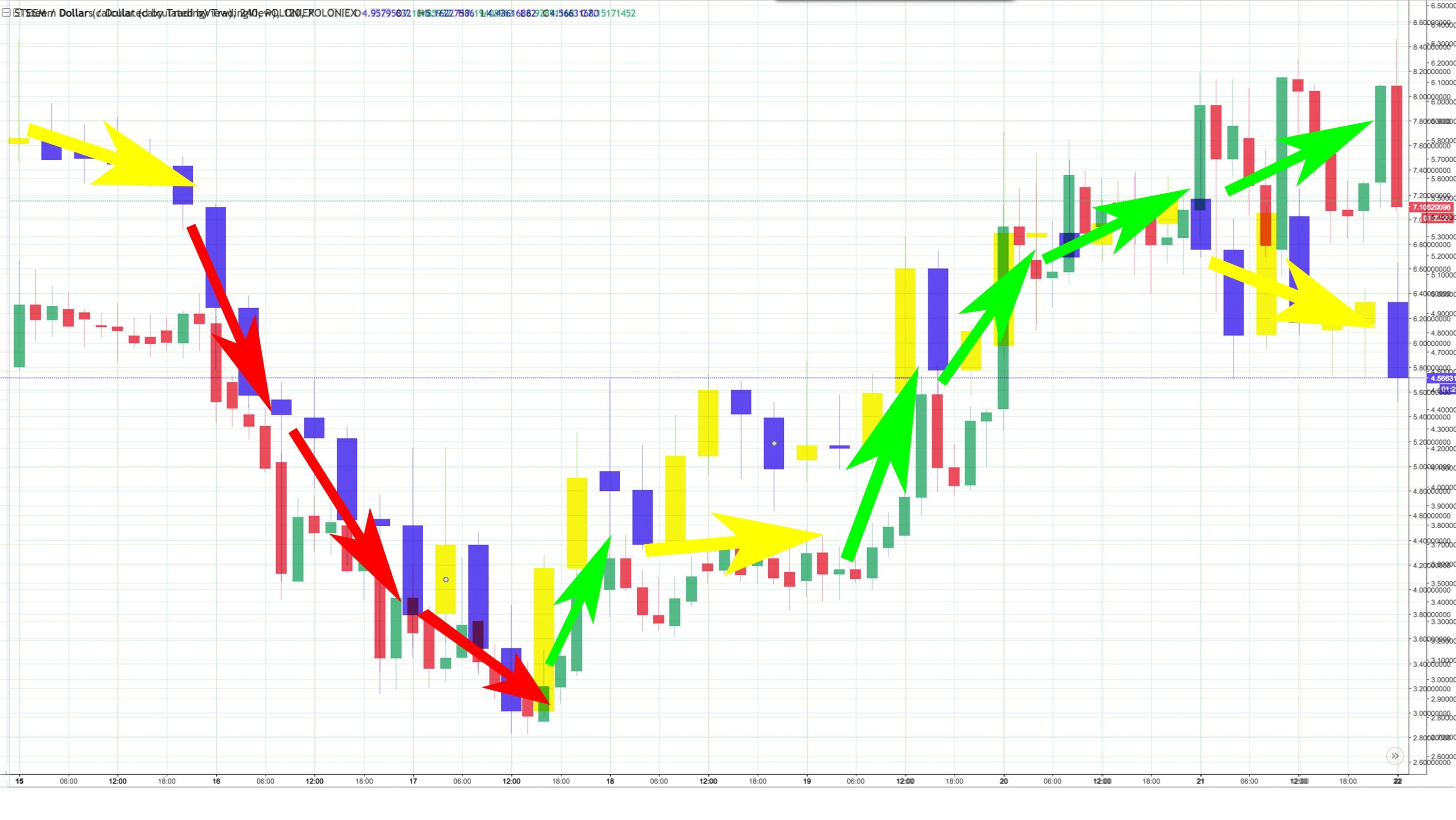
Week 3, 2018: Your Musical Steem and SBD Report
Your Musical Steem and SBD Report
This music composition as made based on the movement of the Japanese candlesticks for Steem and SBD this week. This week we saw different movement in the structure, and thus different music. One thing from this week that I didn't take advantage of is how the voices should have crossed. Since SBD and Steem actually crossed values at one point, it should have been reflected. Musically, this really didn't work and I wanted to take a more holistic approach.
Compositional Process
Each quarter-note beat equals 2 hours on the Steem and SBD charts. For the first 10 bars, the tenor sax plays the line. At measure 10, the viola takes over and pulls us through to the end. Those two instruments represent SBD. The upright bass represents Steem. I've added a few other instruments just for color.
At first, I decided to start this one off jazzy. I wrote a jazz progression using many of the techniques I've used in the past for harmonic structure.
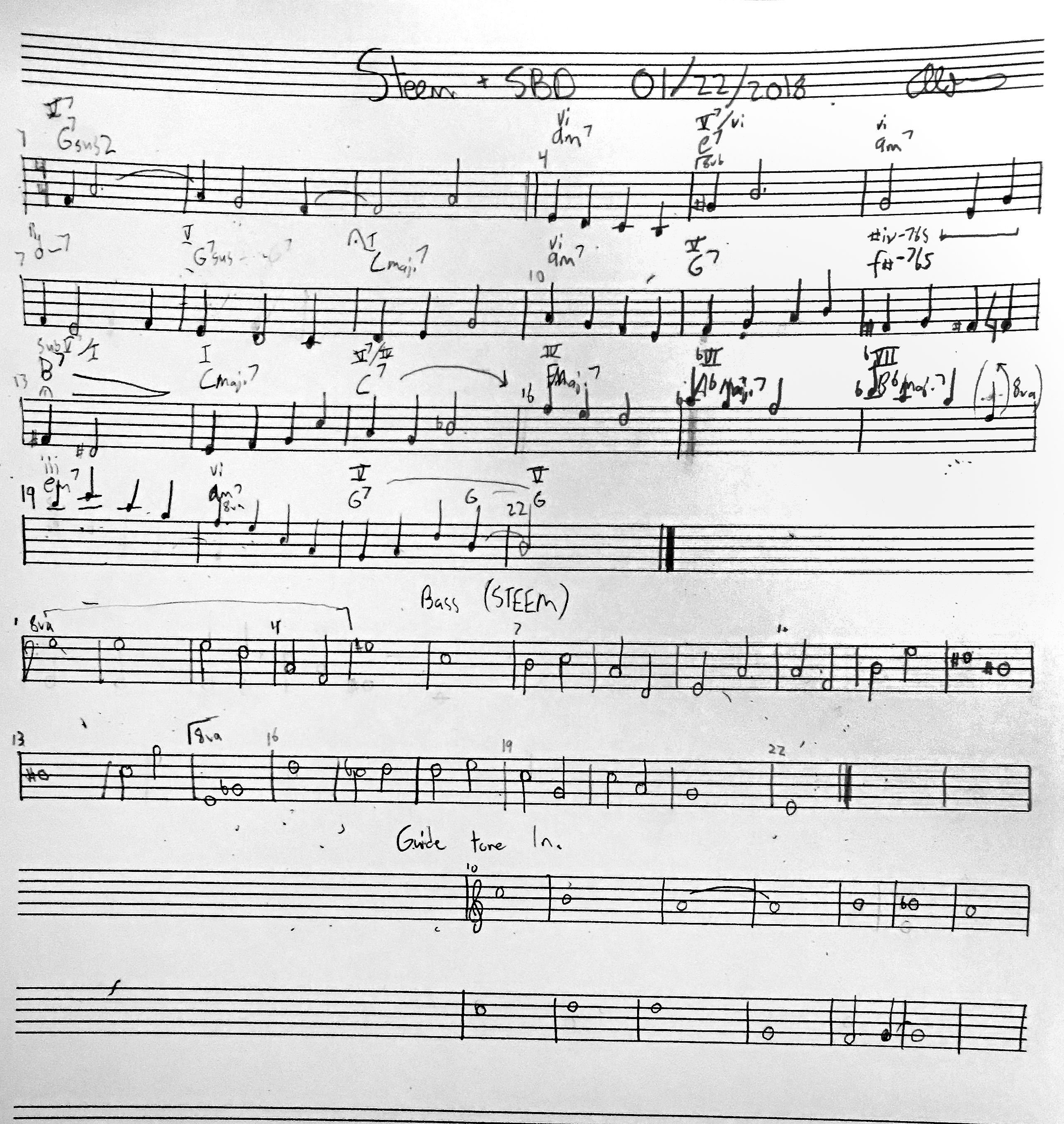
Once I scratched in the chords, I began to write the melody. Following the chart and mapping around the chord changes.
Here's a clean chord chart to check out:
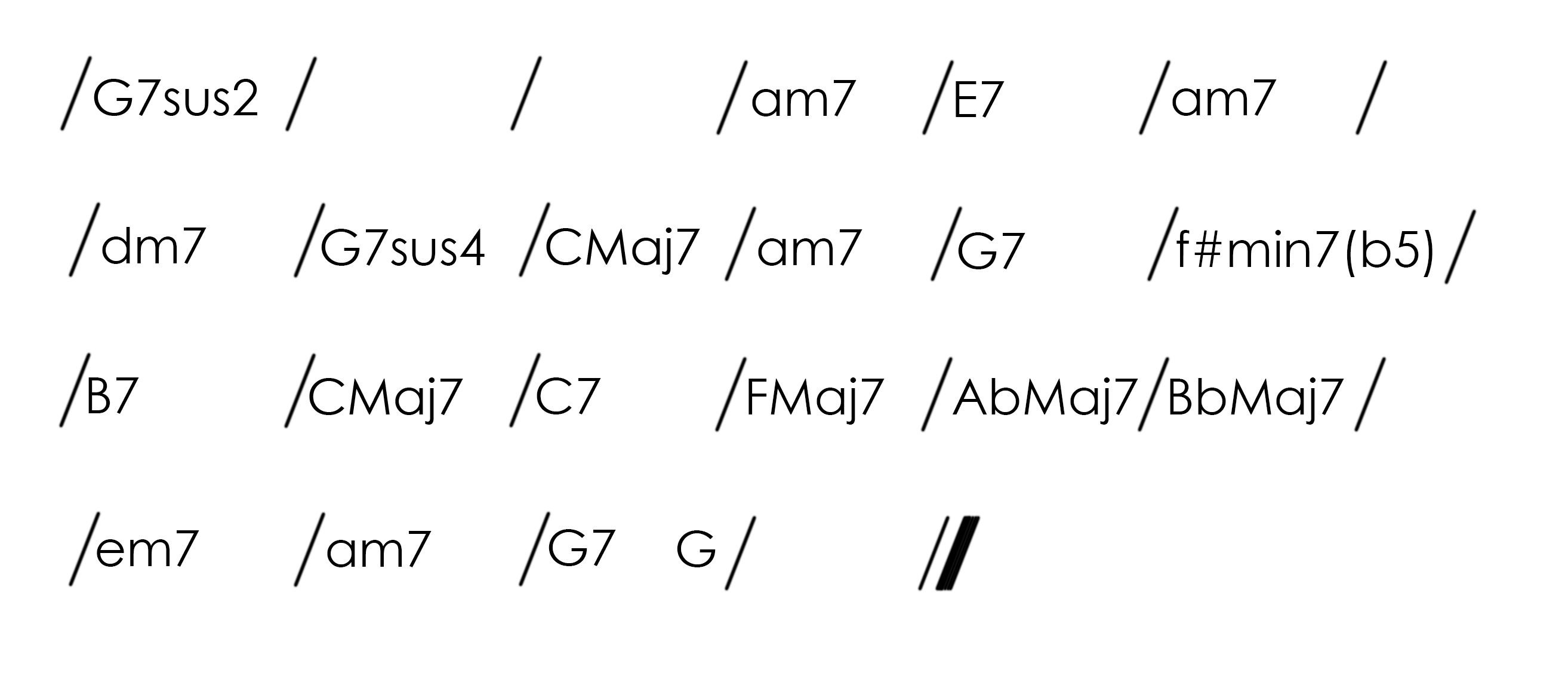
I added a guide-tone line for the viola ensemble starting on measure 10. A guide-tone line in jazz harmony basically means, use chord tones and try to make it smooth voice leading. Fill in empty spots, and give an extra presence. After that, I added in the Bass ensemble just to lightly bow the root of the chord since I couldn't hit it with parts of that.
Mock-up and Record
To begin the process, I tapped in the tempo to my sequencer to show where I want it to keep pace and where I want it to slow down. In the figure below, the lower the purple bars are, the slower it is. It's as simple as that. I wanted to tap the tempo for this because I knew I wanted it to ebb and flow like a live player would play it.

First thing, I recorded Guitar. In this case, I used a Taylor Acoustic to make it a little brighter.
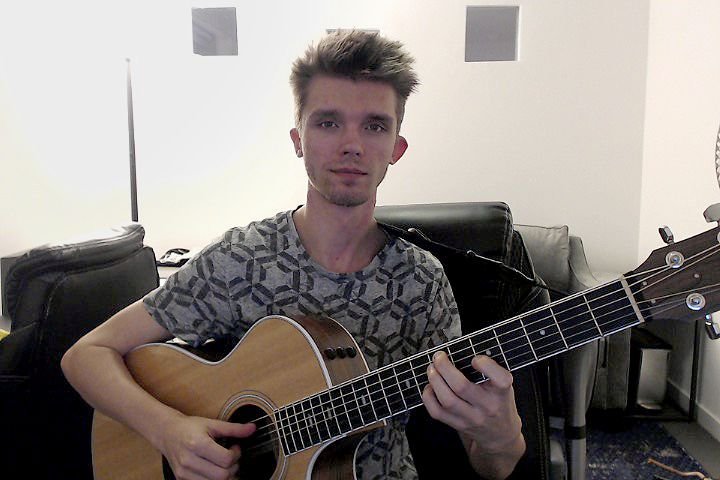
Then I applied some effects to boost the guitar's presence. I recorded two tracks of each guitar part, panned them left and right so that there's a wider feeling than just a single guitar track.
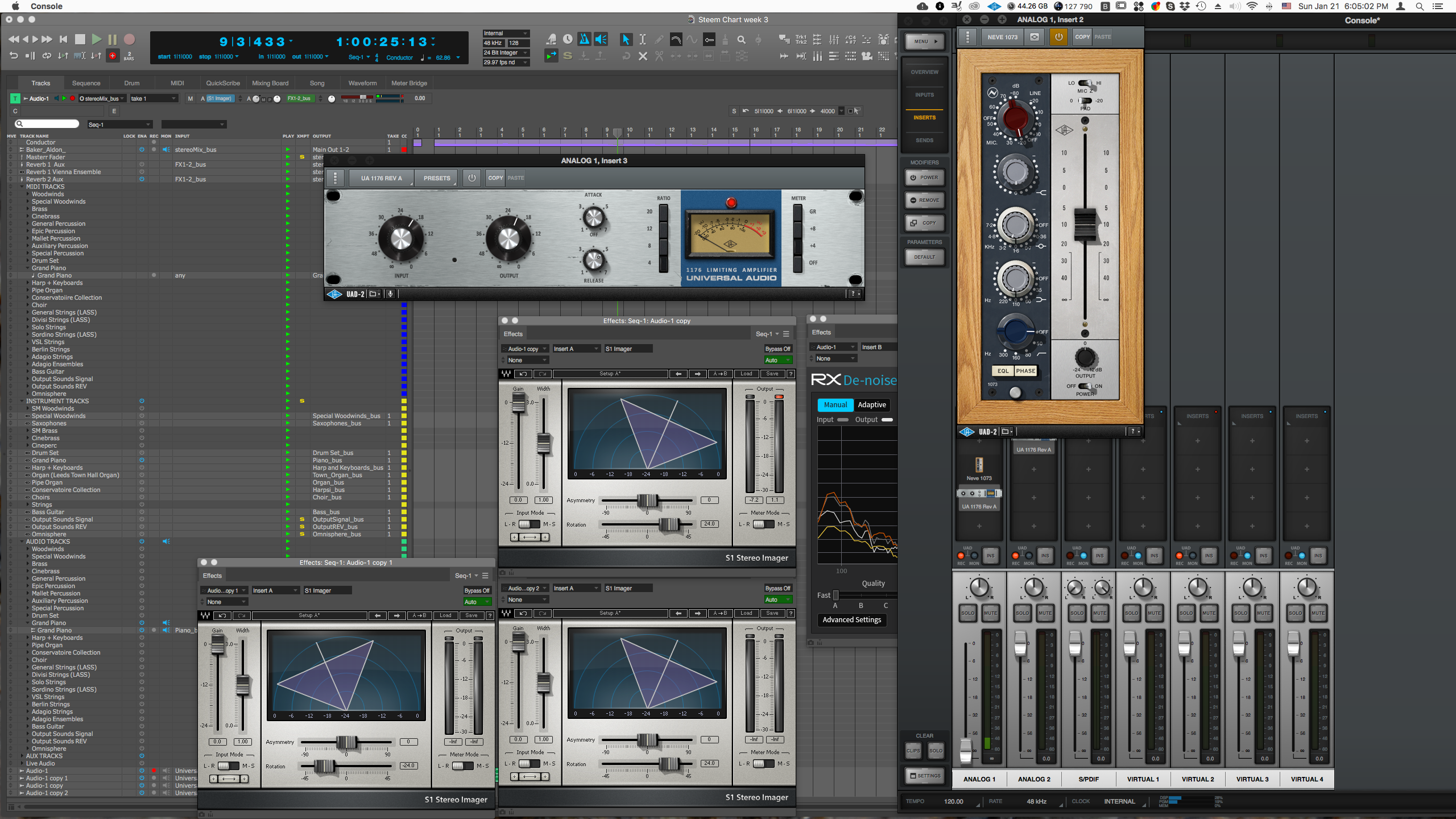
After that I selected my instruments. In the case of the saxophone, I used a breath controller to control how hard the player was breathing into the instrument. In the viola's case, I used a slider to control MIDI Expression CC11 to do the same exact thing. When you breathe into an instrument that's meant to be wind, it feels more real. I hope that comes through.
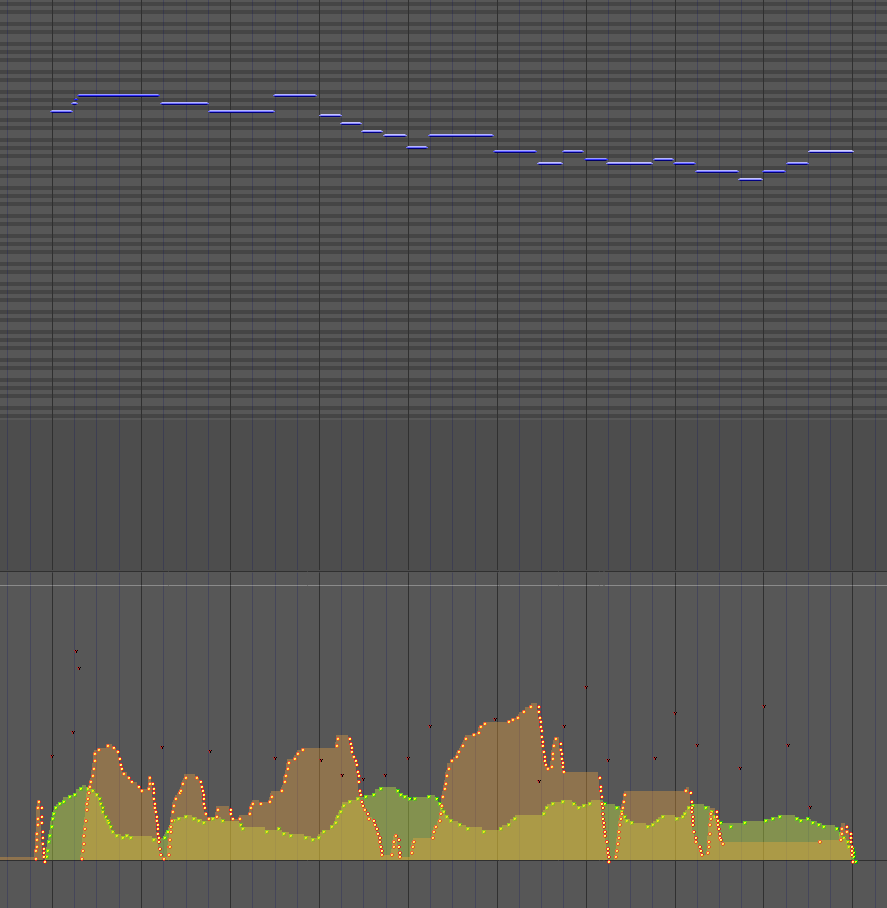
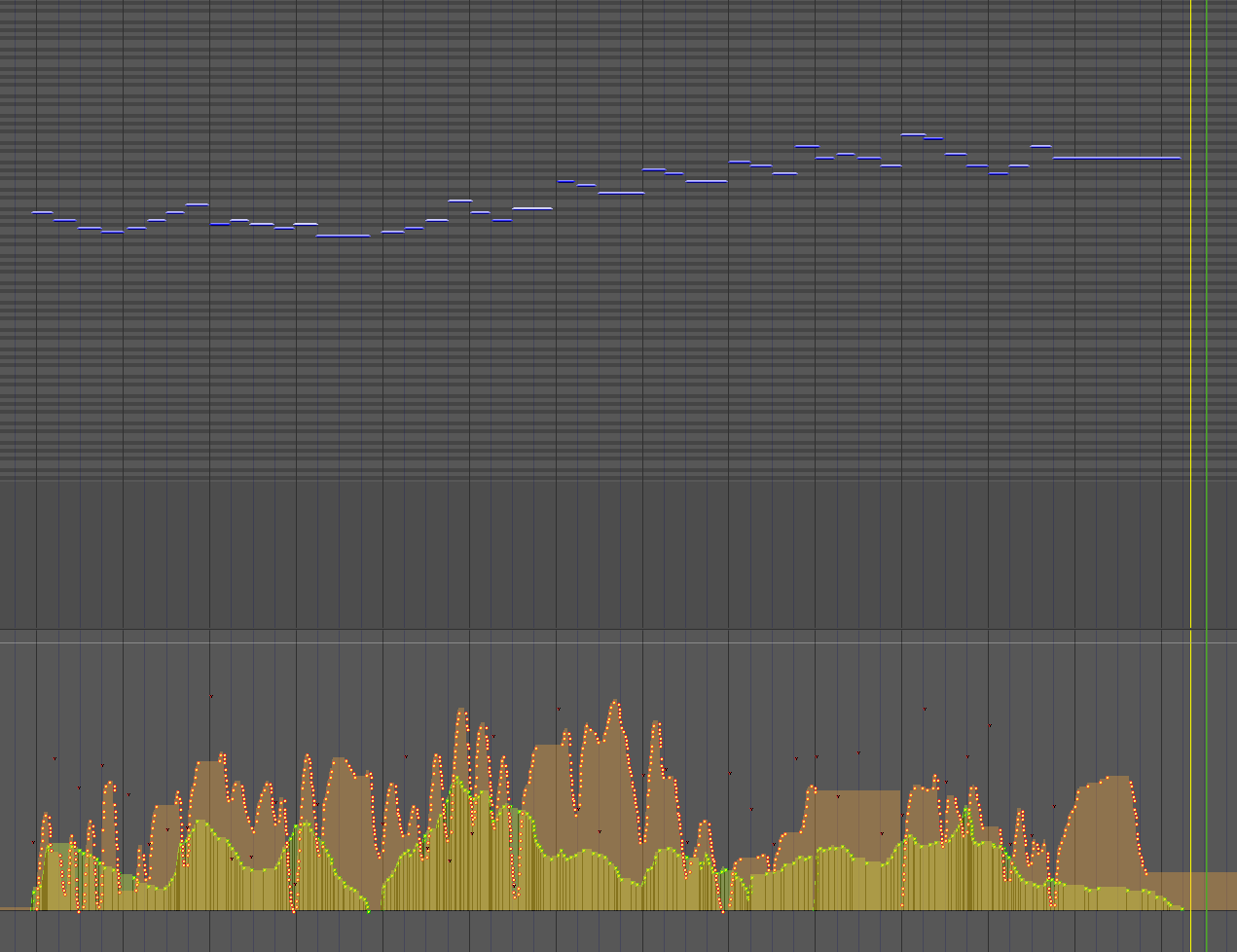
Here's a MIDI image of the melody line:

Future Thoughts
I would like to be able to do monthly summaries involving Steemit users. So don't be shy and reach out! It would be amazing to involve some of the tremendous talent found on here.
Depending on how complicated I allow them to get, I will be posting either once per week, or once per month with a musical update!
Steemians, thanks for taking a look at this report and stay tuned for future ones! Please comment, upvote, resteem, follow, anything helps and I want to meet all of you interested in making Steemit as passionate and collaborative as it can be!

